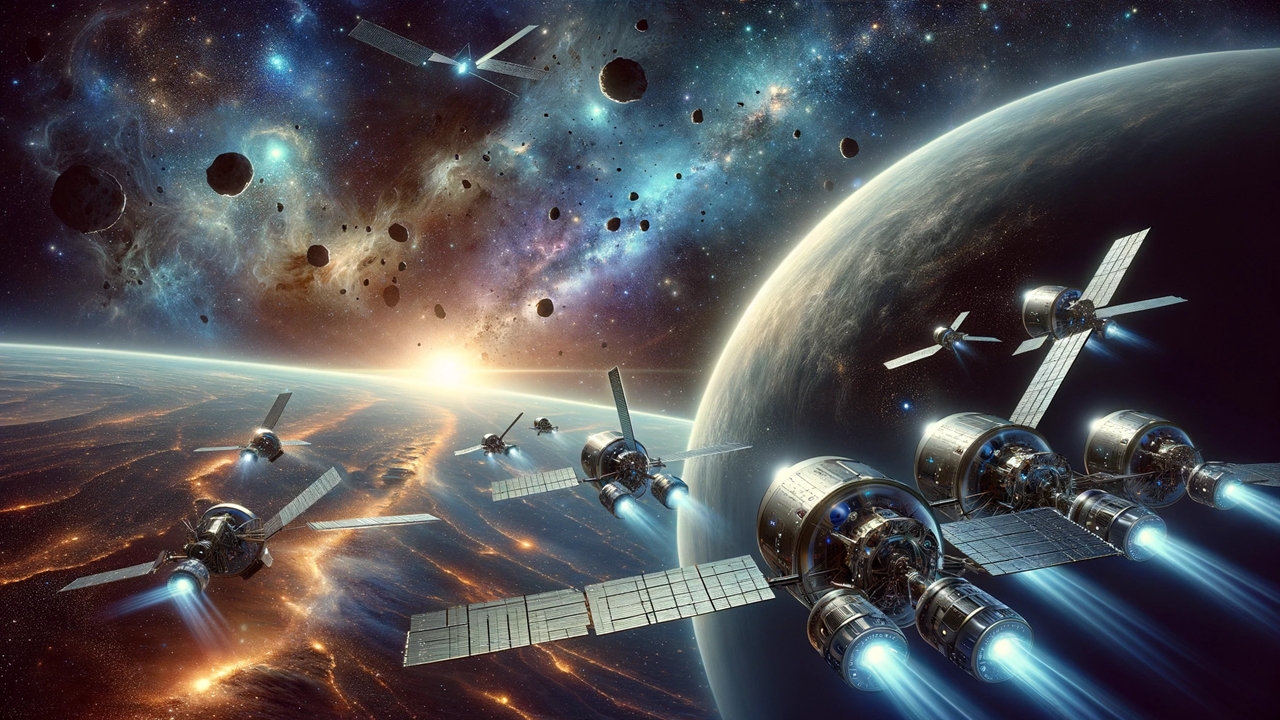Introduction:
Space exploration has always been a testament to humanity’s insatiable curiosity and desire to push the boundaries of knowledge. From the early days of gazing at the stars to landing on the Moon and beyond, our journey into the cosmos has been one of the most remarkable achievements in human history. At the heart of this journey lies the relentless pursuit of technological innovation, driving us to explore the unknown and uncover the mysteries of the universe.
Pioneering the Unknown:
Space exploration represents the pinnacle of human achievement, showcasing our ability to overcome seemingly insurmountable challenges. Pioneering missions, such as the Apollo program, exemplify our determination to reach beyond Earth’s confines and explore the uncharted territories of space. These endeavors not only expand our scientific understanding but also inspire future generations to dream big and pursue ambitious goals.
Unveiling the Mysteries:
One of the primary objectives of space exploration is to unravel the mysteries of the universe. Through advanced telescopes and space probes, scientists have been able to observe distant galaxies, study cosmic phenomena, and gain insights into the origins of the cosmos. From the discovery of exoplanets to the detection of gravitational waves, each new revelation brings us closer to understanding our place in the vast expanse of space.
The Role of Technology:
Technology serves as the cornerstone of space exploration, enabling us to overcome the challenges of venturing into the unknown. From the development of powerful rocket engines to the creation of sophisticated spacecraft, technological advancements have revolutionized our ability to explore distant worlds. Robotic rovers roam the surface of Mars, collecting data and conducting experiments, while satellites orbiting Earth provide invaluable information about our planet’s climate and environment.
Innovations Driving Progress:
Advancements in technology continue to drive progress in space exploration, opening up new possibilities for exploration and discovery. Breakthroughs in propulsion systems, such as ion engines and solar sails, promise faster and more efficient travel through space. Meanwhile, developments in artificial intelligence and machine learning are revolutionizing how we analyze data and conduct autonomous operations in remote environments.
Challenges and Opportunities:
Despite the remarkable achievements in space exploration, significant challenges lie ahead. The vast distances involved in interstellar travel, along with the harsh conditions of space, present formidable obstacles to overcome. However, these challenges also present opportunities for innovation and collaboration. International partnerships, such as those seen in the International Space Station, demonstrate the power of cooperation in advancing our collective knowledge of the cosmos.

The Future of Space Exploration:
Looking ahead, the future of space exploration holds immense promise. Plans for crewed missions to Mars, the establishment of lunar habitats, and the exploration of distant worlds within our solar system are all within reach. Moreover, the emergence of commercial space ventures is democratizing access to space, opening up new avenues for exploration and discovery.
Conclusion:
Space exploration represents a journey of discovery, driven by humanity’s innate curiosity and desire to push the boundaries of knowledge. Through the relentless pursuit of technological innovation, we continue to unveil the mysteries of the universe and pave the way for future generations to explore the cosmos. As we stand on the brink of a new era of space exploration, let us continue to embrace the spirit of exploration and embark on a voyage of discovery that knows no bounds.

